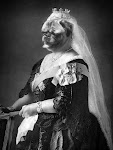The 2008-2009 Kansas City Symphony season is drawing to a close, with just the remainder of this weekend's Subscription concerts, the all Britten program next Thursday and then the annual Symphony in the Flint Hills concert in June. This has been a quieter season than in the past. More standard repertoire to help ensure a full house and less new music. From my vantage point, the box office was good and the audience getting younger. Hopefully, the KC symphony will continue to buck the trend of many cities and continue to support a vibrant orchestra. The new Kaufman Fine Arts Center is on track for 2010-2011 and will really put us on the map.
Be that as it may, the final subscription concert of the season featured pianist Peter Serkin in two works, the "Flying to Kahani: Concertpiece for Piano and Orchestra" by Charles Wuorinen and the Beethoven Second Piano Concerto. Stern and the orchestra concluded with the Shostakovich Symphony # 5.
Years ago, while an undergraduate, I managed to infiltrate a seminar taught by the gregarious and prolific Mr. Wuorinen. Fluent in every form from electronic music (his passion when I met him in 1977, he had won a Pulitzer for his electronic composition Time's Encomium) to symphonies (8 or so by now) and chamber music (his Sextet and String Quartet # 2 are wonderful), Wuorinen was a riveting speaker and quite approachable. I remember him telling the assembled students (among them graduate vocal student Jerry Hadley {RIP}), to explore and use the new media of electronics and to not be afraid of new sounds and forms. Thus, I was so prepared to enjoy Flying to Kahani, a piece written for Serkin and based on a story by Salman Rushdie.
Composed in 2005 for Peter Serkin, "Kahani" is the undiscovered second moon of Earth in Rushdie's novel "Haroun and the Sea of Stories" which Wuorinen set as an opera. In the opera Haroun and a companion fly a mechanical bird to fly to this hidden moon. As they approach their destination they discover a vast sea called Kahani, the "Ocean of the Streams of Story", from which all stories come.
A poetic program for a sadly dreary, dry and mechanical serialist work, in the most academic manner imaginable. Wide leaps from the piano, accompanied by snarls from the orchestra, pounding chords from the extreme registers of the piano over skittering figures from strings and braying brass characterized "Kahani". I felt no connection to the program or any sense of wonder and discovery in this piece that out did anything Roger Sessions or Elliot Carter ever penned. I am sure Serkin and the orchestra played the heck out of it; the performance sounded well prepared and committed. It just did little for me at all.
Beethoven's cheery Piano Concerto # 2 (actually his first) received a decidedly classic performance from Serkin and Stern. Stern and the orchestra have demonstrated an affinity in past performances for music of the early classic era; late Mozart, Haydn and now early Beethoven. Crisp, brisk, elegant for sure, but with glimpses of the revolutionary path Beethoven was to lead the piano and music in general. Serkin blended well with the orchestra and the balances were excellent. Only some poor string intonation at the beginning marred the performance.
The concert's 2nd half was one of the towers of the 20th century symphony (and a candidate for "top 10 Symphony" of all time for some) the Shostakovich Symphony # 5. Whether you believe this is a contrite capitulation to the power of Stalin and the Soviet regime or a nose thumbing protest in disguise (the truth is likely somewhere in between), there is no denying that the 5th is a gripping, powerful, organic, well turned symphonic masterpiece. Stern led the orchestra in an appropriately gripping, powerful and organic performance with some masterful contributions from the wood winds (stunning piccolo work by Diane Schick) and percussion. Unfortunately the sublime, atmospheric horn/flute duet towards the end of first movement was bobbled by the horn, but otherwise the opening movement with its leaping first theme and somewhat motionless second theme moved powerfully forward to its ambiguous close.
The allegretto second was appropriately nervous and satiric, this the most Mahlerian of Shostakovich's symphonic movements. The long and elegiac Largo benefited with the commanding and tonally powerful strings, missing only a more insistent xylophone at the climax, probably due more to the poor acoustics of the hall than a lack of ability from the percussion. From my vantage, she was banging the heck out of the thing.
The famous finale was fiery and driven, never frenetically rushed as seems to be the trend, the tension building and building to the release provided by the coda; which was one of the best I have ever heard. Only Mravinsky in a Leningrad broadcast did it better... but in this case, Stern's tympani fanfares were in tune, Mravinsky's weren't, relegating that performance to the trash heap. Again some wonderful wind and string solos, the lower strings (2nd violins, violas and celli especially) relished their turn in the spotlight, contributing to the ambiguous atmosphere of this still challenging work.
A fitting finale to a great subscription season. Next season promises to be interesting with a mix of standards and some new pieces as well.
Saturday, May 30, 2009
Subscribe to:
Post Comments (Atom)



No comments:
Post a Comment